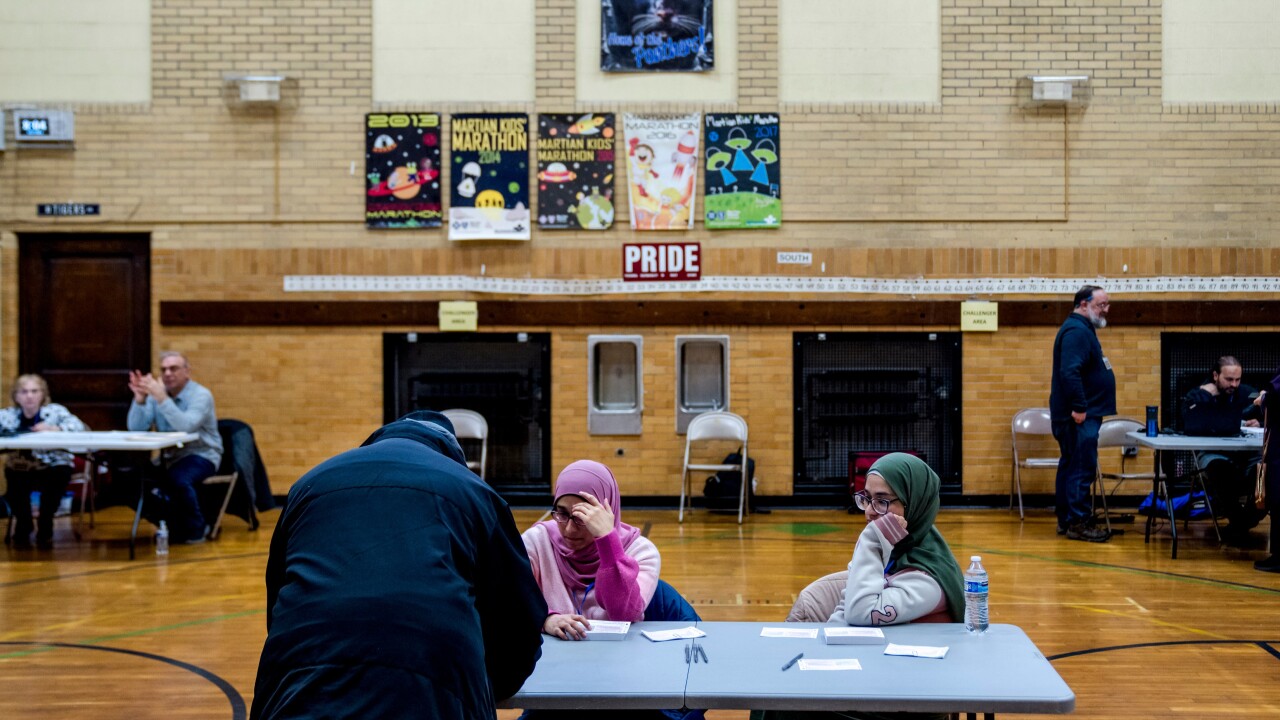Puerto Rico’s general obligation and sales tax bondholders made progress toward settling a key dispute in the territory's debt restructuring, even though their proposed agreement was quickly rejected Monday by the government.
“Importantly, bondholders are talking and willing to make concessions so I think it is a step in the right direction,” said Shaun Burgess, Cumberland Advisors portfolio manager. Cumberland holds some insured Puerto Rico debt. “I think this is a positive development overall, but there is a long way to go before we see a concrete proposal that Judge Swain would approve of.”

U.S. District Judge Laura Swain is overseeing the Title III bankruptcy of Puerto Rico's public sector debt.
The deal reached between the Ad Hoc Group of General Obligation Bondholders, the sales-tax backed COFINA Senior Bondholders Coalition, and several bond insurers would create a new Puerto Rico Securitization Trust to replace COFINA. The trust would own revenues from the first 5.5% of the island’s sales and use tax.
Based on this ownership COFINA Senior bondholders would expect a 93% to 95% recovery rate and COFINA subordinate bondholders would get 42.2% to 43.2% recovery rate. These recoveries might be optimistic by a few percentage points if revenues over the coming decades came in lower than expected.
Current holders of GO and other Puerto Rico guaranteed bonds who opted into the securitized trust would expect recoveries of 58.6% from it. Again, the recoveries could come in a few percentage points lower if the sales and use tax revenues disappointed.
The GO and guaranteed debt holders would also receive “remainder claim certificates” that would entitle them to seek the remaining 41.4% of value from Puerto Rico through the Title III process.
Shortly after the plan was announced on Monday the Puerto Rico Oversight board released a statement that it “remains very interested in achieving a broad-based, consensual restructuring of Puerto Rico’s complex and unaffordable debts and is encouraged that our major creditors, even those with competing claims, are working together towards that same goal. However, the economic terms of this creditor proposal were not crafted with any prior input from either the Oversight Board or the government and are completely unaffordable.”
On April 19 the board approved a fiscal plan for Puerto Rico that had some ambiguity but seemed to suggest that 19% of all debt outstanding for Puerto Rico’s central government should be paid.
Responding to the board’s and central government’s rejection of the proposal, a person with an institution involved in the matter said, “We continue to be optimistic, notwithstanding their posturing, that we will have meaningful engagement about the deal and that it will proceed to an actual resolution.”
The proposed deal would offer $10 billion of debt relief to Puerto Rico, according to a slide presentation. It has the support of 54% of COFINA Senior holders, 35% of GO and guaranteed holders, and 13% of COFINA Subordinate holders.
A minimum of some percentage from 75% to 90% of the GO and guaranteed debt holders would have to participate for the deal to be consummated, though there is an opportunity for supporting parties to waive that requirement.
In addition to the GO-COFINA proposed deal, the COFINA Seniors also announced they had proposed a deal with the agent for Gov. Ricardo Rosselló and the Official Committee of Retirees on April 12. Noting this deal, a spokesman for the COFINA Seniors said in an email, “Discussions in the court-mandated process for the Commonwealth v. COFINA dispute regarding alternative settlement proposals remain ongoing.”
Howard Cure, director of municipal bond research at Evercore, said he's concerned that an extended bankruptcy could drain the Commonwealth of resources.
“While the board is interested in a consensual restructuring, any proposal must be driven by the certified new fiscal plan which sets budgetary priorities and available resources for debt repayments," he said. "The benefit of the [GO-COFINA] proposal was that it was a path to speed up the bankruptcy process and avoid costly litigation.”
“Most of the concessions from the COFINA side are being pried from subordinated debt-holders,” Burgess said. “The proposal clearly favors senior COFINA bondholders with proposed recoveries between 93% and 95%.”
On Monday the COFINA Senior 2007A bonds rallied from trading at 60.8 cents on the dollar on Friday to trade at a high of 73 cents on the dollar on Monday through early afternoon.





